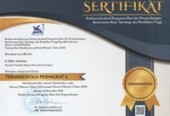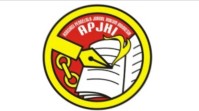Why Did the Adoption of Constitutional Deferral Lead to Unintended Consequences of Freedom of Association in Indonesia?
Abstract
A constitutional deferral is an approach utilised by constitutional drafters so that the drafters do not regulate things in detail in the constitution. This approach is believed to provide more opportunity for the constitutional framers to achieve consensus in drafting a constitution. In the end, this helps a constitution last longer. Constitutional deferral also offers some flexibility for the legislative and the judiciary in interpreting the text of the constitution in the future, which may accommodate the original intentions of the constitutional drafters. This paper argues the opposite. In Indonesia, adopting constitutional deferral causes an uncertain future of freedom of association. This paper aims to address two central questions. First, why did the framers of the first constitution adopt constitutional deferral in drafting provisions on freedom of association? Second, what are the consequences of implementing constitutional deferral toward freedom of association in Indonesia? Through historical and doctrinal approaches, the paper concludes (1) that the sharp ideological differences among constitutional drafters when drafting provisions on freedom of association forced them to employ constitutional deferral. (2) The use of constitutional deferral opens more possibilities for inconsistent interpretation by the executive, the lawmakers, and the judiciary when they establish law or adjudicated cases related to freedom of association. Through constitutional deferral, these three branches of government limit freedom of association instead of protecting such freedom.
Keywords
Full Text:
PDFReferences
REFERENCES
, Article 7 of the. “Constitution of the Republic of Indonesia,” n.d.
, Penetapan Presiden Republik Indonesia Nomor 7 Tahun. “Tentang Syarat-Syarat Dan Penyederhanaan Kepartaian,” n.d.
Asrinaldi, and Mohammad Agus Yusoff. “Power Consolidation and Its Impact on the Decline of Democracy in Indonesia under President Jokowi.” Cogent Social Sciences 9 (2023): 1–20.
Baker, Lynn A. “Constitutional Ambiguities and Originalism: Lessons From the Spending Pow-er.” Northwestern University Law Review 103, no. 2 (2009): 495–548.
Bali, Asli, and Hanna Lerner. “Constitutional Design without Constitutional Moments: Lessons from Religiously Divided Societies.” Cornell International Law Journal 49, no. 2 (2016): 227–308.
Berger, Mark T. “Old State and New Empire in Indonesia: Debating the Rise and Decline of Su-harto’s New Order.” Third World Quarterly 18, no. 2 (June 1997): 321–61.
Bertrand, Jacques. “Indonesia’s Quasi-Federalist Approach: Accommodation amid Strong Inte-grationist Tendencies.” International Journal of Constitutional Law 5, no. 4 (October 2007): 576–605.
Bisariyadi, Saldi Isra, Muhamad Ali Safa’at, and Khairul Fahmi. “Competing Concepts: Human Rights in Indonesia’s Constitutional Setting.” Journal of Legal, Ethical and Regulatory Issues 24, no. Special Issues 5 (2021): 1–9.
Bogdanor, Vernon. “Conclusion.” In Constitutions in Democratic Politics, 380–86. Gower, 1988.
Brown, Nathan J. Mrs. Lincoln’s Egyptian Constitution. Carnegie Endowment for International Peace, 2013.
Budiarjo, Miriam. Dasar-Dasar Ilmu Politik. Gramedia Pustaka Utama, 2008.
Carnegie, Paul J. “Reorganising Constitutional Power in Indonesia: The Politics of Reform.” Journal of Politics and Democratization 4, no. 4 (December 2020): 53–70.
Ciżyńska-Pałosz, Angelika. “Polish Constitutional Tribunal Judgments with ‘Deferral Clause’ and Their Application by Polish Courts.” Teisė 115 (2020): 122–33.
Clark, Dana L. “The World Bank and Human Rights: The Need for Greater Accountability.” Harvard Human Rights Journal 15 (2002): 205–26.
Dixon, Rosalind. “Constitutional Design Deferred.” In Comparative Constitution Making: Re-search Handbooks in Comparative Constitutional Law Series, edited by David Landau and Hanna Lerner, 165–85. Edward Elgar Publishing, 2019.
Dixon, Rosalind, and Tom Ginsburg. “Deciding Not to Decide: Deferral in Constitutional De-sign.” International Journal of Constitutional Law 9, no. 3–4 (October 2011): 636–72.
Dixon, Rosalind, and Samuel Issacharoff. “Living to Fight Another Day: Judicial Deferral in De-fense of Democracy.” Wisconsin Law Review 2016, no. 4 (2016): 683–732.
Elkins, Zachary, Tom Ginsburg, and James Melton. The Endurance of National Constitutions. Cambridge University Press, 2009.
Elster, Jon. “Forces and Mechanisms in the Constitution-Making Process.” Duke Law Journal 45, no. 2 (November 1995): 354–96.
Feith, Herbert, and Lance Castles, eds. Indonesian Political Thinking: 1945-1965. Cornell Uni-versity Press, 1970.
Gerring, John. Case Study Research: Principles and Practices. Cambridge University Press, 2006.
Gillespie, John. “Public Discourse and Constitutional Change: A Comparison of Vietnam and Indonesia.” Asian Journal of Comparative Law 11 (2016): 209–18.
Graber, Mark A. “The Nonmajoritarian Difficulty: Legislative Deference to the Judiciary.” Stud-ies in American Political Development 7 (Spring 1993): 35–73.
Hosen, Nadirsyah. “Reform of Indonesian Law in the Post-Soeharto Era (1998-1999).” Disserta-tion, University of Wollongong, 2004.
Hudawati, Nannie, and Saafroedin Bahar. Risalah Sidang Badan Penyelidik Usaha-Usaha Per-siapan Kemerdekaan Indonesia (BPUPKI), Panitia Persiapan Kemerdekaan Indonesia (PPKI), 28 Mei 1945-22 Agustus 1945. Sekretariat Negara Republik Indonesia, 1998.
III/MPRS/1963, Ketetapan MPRS Nomor. “Tentang Pengangkatan Pemimpin Besar Revolusi Bung Karno Menjadi Presiden Republik Indonesia Seumur Hidup (MPRS Decree on the Determination of Soekarno as Lifetime President).,” n.d.
Indrayana, Denny. Indonesian Constitutional Reform, 1999-2002: An Evaluation of Constitution-Making in Transition. Penerbit Buku Kompas, 2008.
Komprehensif, Tim Penyusun Naskah. Naskah Komprehensif Perubahan Undang-Undang Dasar Negara Republik Indonesia Tahun 1945. 8th ed., 2010.
Landau, David. “Constitution-Making Gone Wrong.” Alabama Law Review 64, no. 5 (2013): 923–80.
Lerner, Hanna. “Constitution-Writing in Deeply Divided Societies: The Incrementalist Ap-proach.” Nations and Nationalism 16, no. 1 (2010): 68–88.
Lindsey, Tim. “Indonesia: Devaluing Asian Values, Rewriting the Rule of Law.” In Asian Dis-course of Rule of Law, edited by Randall Peerenboom, 286–323. Routledge, 2004.
———. “Indonesian Constitutional Reform: Muddling Towards Democracy.” In Public Law in East Asia, edited by Albert H. Y. Chen, 337–63. Routledge, 2013.
Lombardi, Clark B. “The Constitution as Agreement to Agree: The Social and Political Founda-tions (and Effects) of the 1971 Egyptian Constitution.” In Social and Political Founda-tions of Constitutions, edited by Denis J. Galligan and Mila Versteeg. Cambridge Univer-sity Press, 2013.
Malagodi, Mara. “The Rejection of Constitutional Incrementalism in Nepal’s Feedralisation.” Federal Law Review 46 (2018): 521–40.
McWhinney, Edward. Constitution-Making: Principles, Process, Practice. University of Toronto Press, 1981.
Negretto, Gabriel L. “Democratic Constitution-Making Bodies: The Perils of a Partisan Conven-tion.” International Journal of Constitutional Law 16, no. 1 (2018): 254–79.
Nurhardianto, Fajar. “Politik Hukum HAM Di Indonesia.” Jurnal TAPIS 10, no. 2 (2014): 69–90.
Nwokora, Zim. “Constitutional Design for Dynamic Democracies: A Framework for Analysis.” International Journal of Constitutional Law 20, no. 2 (2022): 580–610.
Omara, Andy. “Protecting Economic and Social Rights in a Constitutionally Strong Form of Ju-dicial Review: The Case of Constitutional Review by the Indonesian Constitutional Court.” Dissertation, University of Washingtion, 2017.
Pasarlay, Shamshad. “The Limits of Constitutional Deferral: Lessons from the History of the 2004 Constitution of Afghanistan.” Washington International Law Journal 27, no. 3 (2018): 683–714.
Preuss, Ulrich K. “The Politics of Constitution Making: Transforming Politics into Constitu-tions.” Law & Policy 13, no. 2 (April 1991): 107–24.
PNI, PDI is the merger of. “Parkindo, Partai Katolik, Murba, and IPKI.,” n.d.
PSII, PPP is the merger of. “Parmusi, NU and PERTI,” n.d.
Razuni, Ganjar. “Bung Karno’s Political Thought According to Pancasila: A Study of Bung Kar-no’s Speech on June 1, 1945, and the President Soekarno/Bung Karno’s Pancasila Course Throughout 1958-1959.” Jurnal Wacana Politik 8, no. 2 (October 2023): 223–34.
Setiawan, Ken M. P. “Vulnerable But Resilient: Indonesia in An Age of Democratic Decline.” Bulletin of Indonesian Economic Studies 58, no. 3 (2022): 273–95.
Tim Penyusun Naskah Komprehensif. Naskah Komprehensif Perubahan Undang-Undang Da-sar Negara Republik Indonesia Tahun 1945: Latar Belakang, Proses, Dan Hasil Pem-bahasan 1999-2002 – Buku VIII Warga Negara Dan Penduduk, Hak Asasi Manusia Dan Agama (Edisi Revisi). Sekretariat Jenderal dan Kepaniteraan Mahkamah Konstitusi, 2010.
Tushnet, Mark. “Constitution-Making: An Introduction.” Texas Law Review 91, no. 7 (2013): 1983–2013.
Ulum, Muhammad Bahrul. “Indonesian Democracy and Political Parties After Twenty Years of Reformation: A Contextual Analysis.” Indonesia Law Review 10, no. 1 (2020): 29–43.
Ulum, Muhammad Bahrul, and Nilna Aliyan Hamida. “Revisiting Liberal Democracy and Asian Values in Contemporary Indonesia.” Constitutional Review 4, no. 1 (May 2018): 111–30.
Wandan, Solongo. “Nothing out of the Ordinary: Constitution Making as Representative Poli-tics.” Constellations 22, no. 1 (2015): 44–58.
Warburton, Eve, and Edward Aspinall. “Explaining Indonesia’s Democratic Regression: Struc-ture, Agency, and Popular Opinion.” Contemporary Southeast Asia 41, no. 2 (2019): 255–85.
Wiratraman, Herlambang P. “Press Freedom, Law and Politics in Indonesia: A Socio-Legal Study.” Dissertation, Universiteit Leiden, 2014.
Yamin, Muhammad. Naskah Persiapan Undang-Undang Dasar 1945. Jajasan Prapantja, 1959.
DOI: http://dx.doi.org/10.28946/slrev.Vol8.Iss1.2148.pp60-78
Refbacks
- There are currently no refbacks.

Sriwijaya Law Review (SLRev) ISSN: 2541-5298 | e-ISSN: 2541-6464 is licensed under a Creative Commons Attribution-ShareAlike 4.0 International License.






















